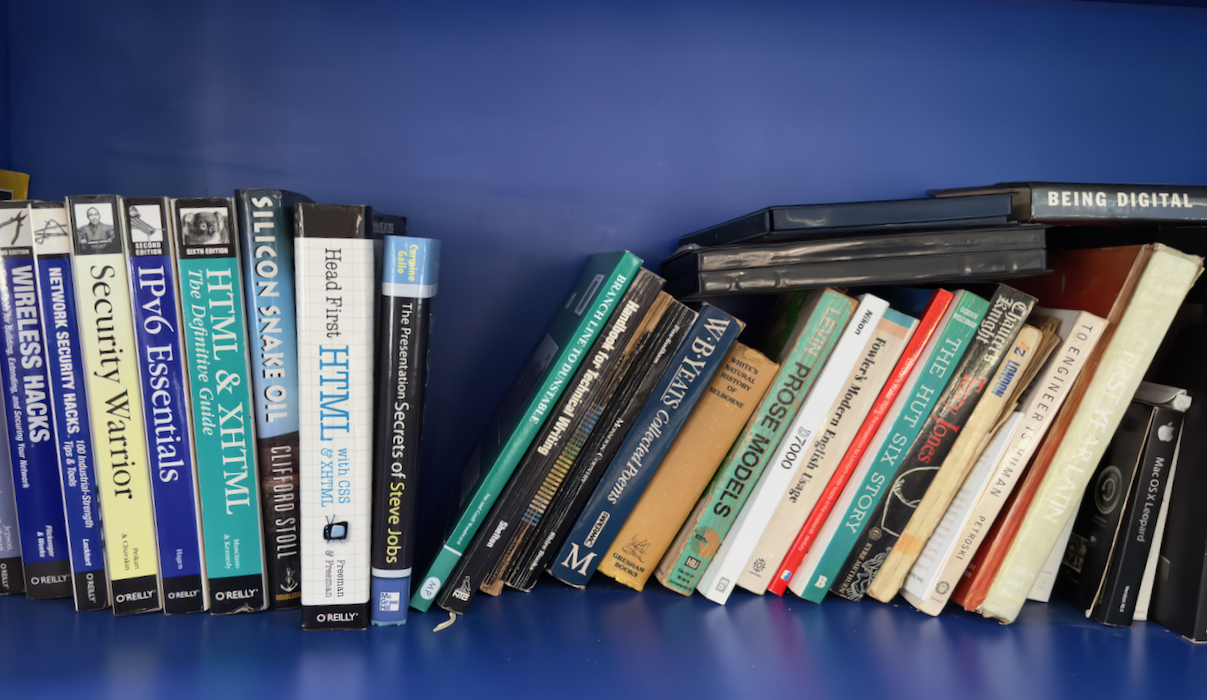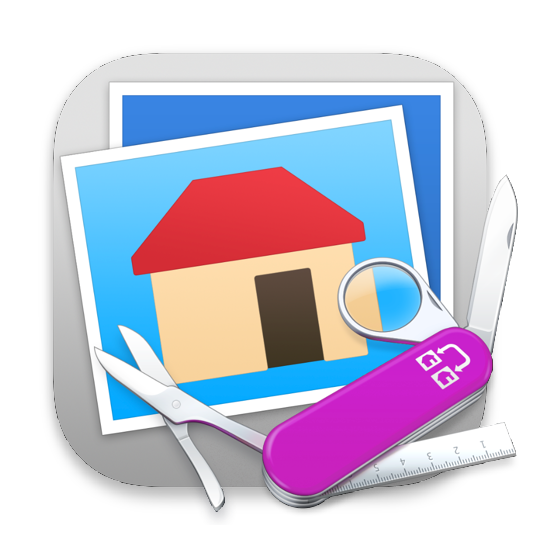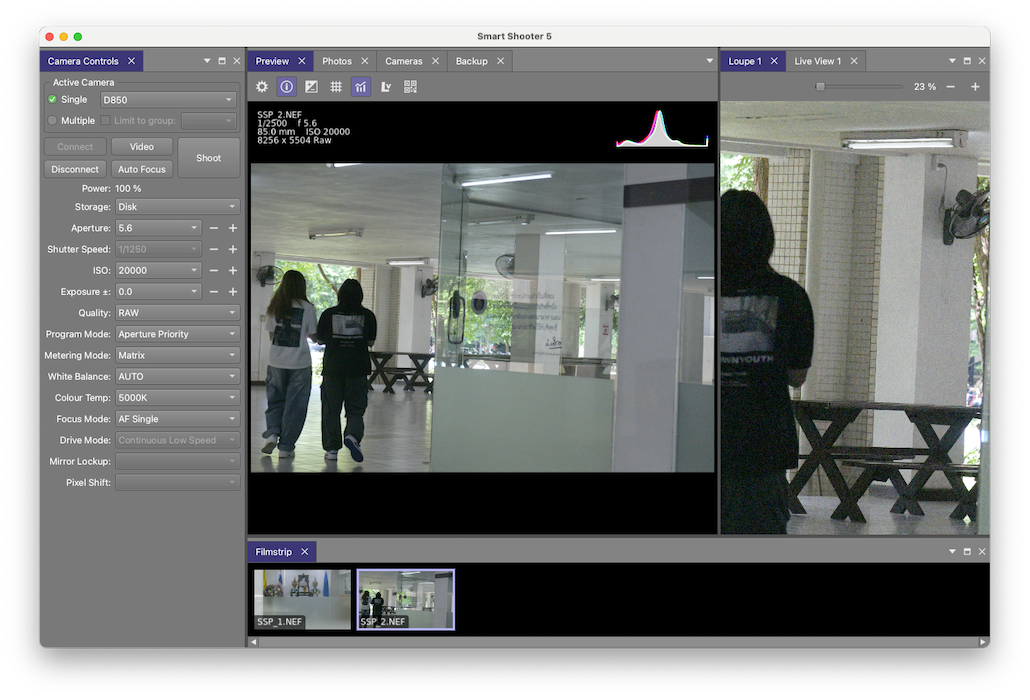
eXtensions - Thursday 22 August 2024
By Graham K. Rogers

Monopolies are all the rage and Google may have to face the consequences for its approach to search. Apple too is not popular in some quarters for the way subscriptions are charged. A 30% fee might gave been reasonable when the App Store first arrived, but it may be time for changes. Where do apps come from and are they safe? OK if from the app stores, but on the Mac there are still ways to install rogue apps (and those not so rogue). Apparency can help confirm status of apps and a check of apps had me deleting several old ones and updating others.
There has been much discussion over the status of US tech companies. Google was recently found to be a monopoly with regard to the search engine. It was criticized for the way it works to keep Google as the default search engine on Android and Apple devices with the latter receiving $18 billion a year for the honor (some sources say $20b). Google search is good, but increasingly the user has to filter through several results that are advertising (and other). I am currently trying the Ecosia search engine on the iPad Pro, which works fairly well, although it needs some fine-tuning.
Apple has also been in the sights of fair trade organizations in several countries, including the USA and EU, with the latter (like the UK Competition and Markets Authority) having some firm ideas about what constitutes a monopoly and being more willing to listen to opponents than to Apple. This week the CMA announced that they are ending their investigations into Apple and Google as they have better things to do. It is not a free pass as this is likely to be taken up under other authorities in the UK (William Gallagher, Apple Insider). The idea to force Apple to allow 3rd party app stores, while dismissing the security aspects brought up by Cupertino and independent experts, is absurd. Despite the commercial nature of the Android and iOS operating systems (copyrighted software), the EU in particular seems to regard this as a public resource. That Apple can do no wrong is equally absurd.
 I understand the 30% fee that developers pay Apple for providing the infrastructure: the space (App Store); and the hardware (Macs, iPhones, et al). Whether that is the right amount now, considering the success of the App Store, is a question I am unable to answer. I worked in the news distribution industry many years ago. Wholesalers (then) deducted two amounts from the sale of any publication: from the publisher and from the retailer, with the customer paying the cover price. The wholesaler provided trucks, warehouses and personnel to enable the efficient distribution of news.
I understand the 30% fee that developers pay Apple for providing the infrastructure: the space (App Store); and the hardware (Macs, iPhones, et al). Whether that is the right amount now, considering the success of the App Store, is a question I am unable to answer. I worked in the news distribution industry many years ago. Wholesalers (then) deducted two amounts from the sale of any publication: from the publisher and from the retailer, with the customer paying the cover price. The wholesaler provided trucks, warehouses and personnel to enable the efficient distribution of news.
I do have some advertising on this site (top and bottom) but these days, as others have found with the arrival of ad-blocking, the income is no longer enough to support a site. This week, MacDaily News (MDN) is questioning whether or not it should continue for these reasons. For me that is not a problem. I produce significantly less than sites like MDN and I have a day job. Others have tried a number of solutions, including subscriptions, PayPal, and more recently, Patreon. This is a service: Premium users are charged 12% of the monthly income earned on Patreon, plus payment processing, currency conversion, and payout fees. For Pro users it is 8%. There are also charges for digital sales (Patreon FAQ). Using the iPhone app also brings a fee from Apple which means the Patreon subscriber - like someone running a website - receives considerably less.
Those who follow Apple will be aware of MacWorld's Macalope columns. The writer usually takes a look at the silliness that surrounds Apple and the news reports that are generated. In general, the Macalope is pro-Apple particularly when fake news is concerned. But not this week. This week there is a sense of anger borne of frustration. By making Patreon users switch over to subscription billing, Apple has moved the goalposts and got this wrong, although the Macalope adds that Patreon is not exactly helping here. John Gruber (Daring Fireball) is also usually pro-Apple, but thinks that Apple has this wrong, too. On the point that Patreon has to transition to subscription billing because they fear Apple will remove them from the App Store if they do not, Gruber comments that they should go ahead as, if Cupertino were to remove them, "how would that not backfire spectacularly in Apple's face?" With some of the online comments it already is backfiring in some ways.
 MacStories might also be considered fairly pro-Apple, but Federico Viticci, referring to a recent podcast that touched on this, reports on the Patreon débacle, with comments from Matt Birchler, who writes that ". . . Apple is no longer the underdog, they're the biggest fish in the sea . . ." adding that "Apple continues to make decisions that put it at odds with the community that used to tirelessly advocate for them." Both Viticci and Birchler feel as if there are two Apples. Viticci closes with the comment, "I don't know how to reconcile the two, and I don't think I'm alone in feeling this way lately."
MacStories might also be considered fairly pro-Apple, but Federico Viticci, referring to a recent podcast that touched on this, reports on the Patreon débacle, with comments from Matt Birchler, who writes that ". . . Apple is no longer the underdog, they're the biggest fish in the sea . . ." adding that "Apple continues to make decisions that put it at odds with the community that used to tirelessly advocate for them." Both Viticci and Birchler feel as if there are two Apples. Viticci closes with the comment, "I don't know how to reconcile the two, and I don't think I'm alone in feeling this way lately."
There are more, including Sarah Perez (TechCrunch) who writes, "The announcement serves as another example of how Apple's App Store rules have been applied unevenly"; and Emma Roth (The Verge), reporting factually, uses verbs that paint the decisions in a negative light. Even Juli Clover (MacRumors) whose report is tight and factual, writes that Patreon is transitioning all its creators to subscription billing, because "if it does not adopt the in-app purchase system for all iOS transactions, it risks being kicked out of the App Store." She notes the anomaly that "Apple's 30 percent cut of Patreon subscriptions will be higher than the amount that Patreon keeps from creators". Stephen Warwick (iMore), seems to be more conciliatory noting that this only applies to new subscriptions, commenting, "While the move might appear at first glance to be a money grab from Apple, the ramifications will probably be pretty small."
This week it is reported that the App Store is to experience a major reorganisation and is to be split in two. Rajesh Pandey (Cult of Mac) writes that "Matt Fischer, the VP of the App Store since 2010, will leave Apple in October of this year." The split is said to be to avoid "further regulatory scrutiny."
I had email from Apple last week concerning my account at iTunes Connect. I had sort of planned a few years back to produce an iBook, but as there have only (up to now) been copyright-free books on the Book Store here, I looked at alternatives and gave up on the idea. The content of the email told me that, if I wanted to sell any of my content in the EU, I would have to enter trader status or all my works would be removed from sale in the EU. This is another result of the Digital Services Act (DSA) that is causing some unexpected ripples. I didn't bother because I am unlikely to produce anything in the near future, but the idea of doing any business in the EU with its barriers, seems to be not worth the effort. I archived the email
At the weekend Connor Jewiss (iMore) wrote about what he calls, "this insane requirement". It will require the trader to publish an address and phone number which is displayed on the App Store page. Jewiss is at pains to point out that this is the EU, not Apple who are only acting as the middleman.

With the iPad and iPhone I download all my applications from the App Store. And I always will do this. The idea of side loading, which has now been forced on Apple in the EU, is a risk I am unwilling to take. The Mac is a different matter, because, unlike the iPhone et al, where I was working with a clean slate, I use a number of legacy applications, some dating back to when I first had a Mac and ran System 7. The App Store for the Mac is different from the other Apple platforms. Although Apple has tried to improve user security, it can still be a bit Wild West out there.
 With Gatekeeper, there was the option of telling the system, "Yes, I know where this came from so I will install it anyway". Apple tried to make things tighter with notarized apps. Once a developer is registered they become one of the good guys. There are others who do not go through that and are considered less secure by Apple and it is now less easy to install such software. I still download apps from such sources, but only if I have a cast-iron recommendation or already know the developer and their products.
With Gatekeeper, there was the option of telling the system, "Yes, I know where this came from so I will install it anyway". Apple tried to make things tighter with notarized apps. Once a developer is registered they become one of the good guys. There are others who do not go through that and are considered less secure by Apple and it is now less easy to install such software. I still download apps from such sources, but only if I have a cast-iron recommendation or already know the developer and their products.
Last week Howard Oakley (Eclectic Light Company) commented on the value of knowing if an app is notarized. Apple does not show this in the Finder metadata for the app. He strongly suggests Apparency (which is signed), from Randy Salinger at Mothers Ruin. I downloaded the app while at the office and once I was able to see how it worked (from comments by Hoakley and the Apparency information). I ran through all of the applications installed on the Mac mini at work. Some of the apps had expired certificates and although I checked for updates, these had evaporated. As most of them were not being used regularly (or at all) it was a good time for a clear out.
 At the weekend, I also started looking at apps on the the MacBook Pro. Taking the same approach I deleted several apps, but also took the opportunity to update Graphic Converter which had been nagging me for a while about needing an upgrade for the latest version of macOS.
At the weekend, I also started looking at apps on the the MacBook Pro. Taking the same approach I deleted several apps, but also took the opportunity to update Graphic Converter which had been nagging me for a while about needing an upgrade for the latest version of macOS.
Instead of downloading from Lemke Software site, I used the App Store and paid the full price. I spoke to Thorsten Lemke at MacWorld 2007 (the year the iPhone was announced) and he was easy to chat to. It is one of the all time great examples of graphic software and has fixed my problems on countless occasions.
One of the apps I found was now unsigned on the MacBook Pro was Sharp Shooter: an app for tethering cameras. I had version 3 and the last time I used this it was a little unstable. The other software I had for tethering would not work with the Nikon D850, despite having it listed, and is now also unsigned. I deleted both. I looked for a replacement, but had no luck on the Mac App Store, so went looking online.
I was surprised to find that Sharp Shooter version 5 was now available. I had missed the updates to 4 and to 5 (how?), but also found that this was being distributed by another company. I downloaded a trial version but once I had checked pricing ($99.99 for my needs), tried to pay. After entering the name, I was asked to select the country, but Thailand was not listed and I was unable to complete the transaction. I have sent a note to customer relations and look forward to Thailand being put back on the map.

Following comments by John Bilbao on PetaPixel regarding output from different apps when editing RAW images, I had another look at Nikon's NX Studio. The download and installation were not as easy as I am used to, with too many requests for permissions and disk changes. I ended up with the app in a folder within Applications. As expected I was reminded that this was a downloaded app, but using Apparency is was easy to see that the app was signed by Nikon and they are recognized good guys, which was not really a surprise.
The main problem for me is that this does not allow imports from Photos (unlike Photomator for example), but as I was at work one of the disks connected to the Mac mini contains backup folders of RAW images taken earlier, so I was able to try one of those. The alternative would be to export an original and then edit in NX Studio. Like any new software, one of the tricks is to learn the tools (and their key commands), but first we have to find where they are.

Graham K. Rogers teaches at the Faculty of Engineering, Mahidol University in Thailand. He wrote in the Bangkok Post, Database supplement on IT subjects. For the last seven years of Database he wrote a column on Apple and Macs. After 3 years writing a column in the Life supplement, he is now no longer associated with the Bangkok Post. He can be followed on X (@extensions_th). The RSS feed for the articles is http://www.extensions.in.th/ext_link.xml - copy and paste into your feed reader.

For further information, e-mail to
Back to
eXtensions
Back to
Home Page